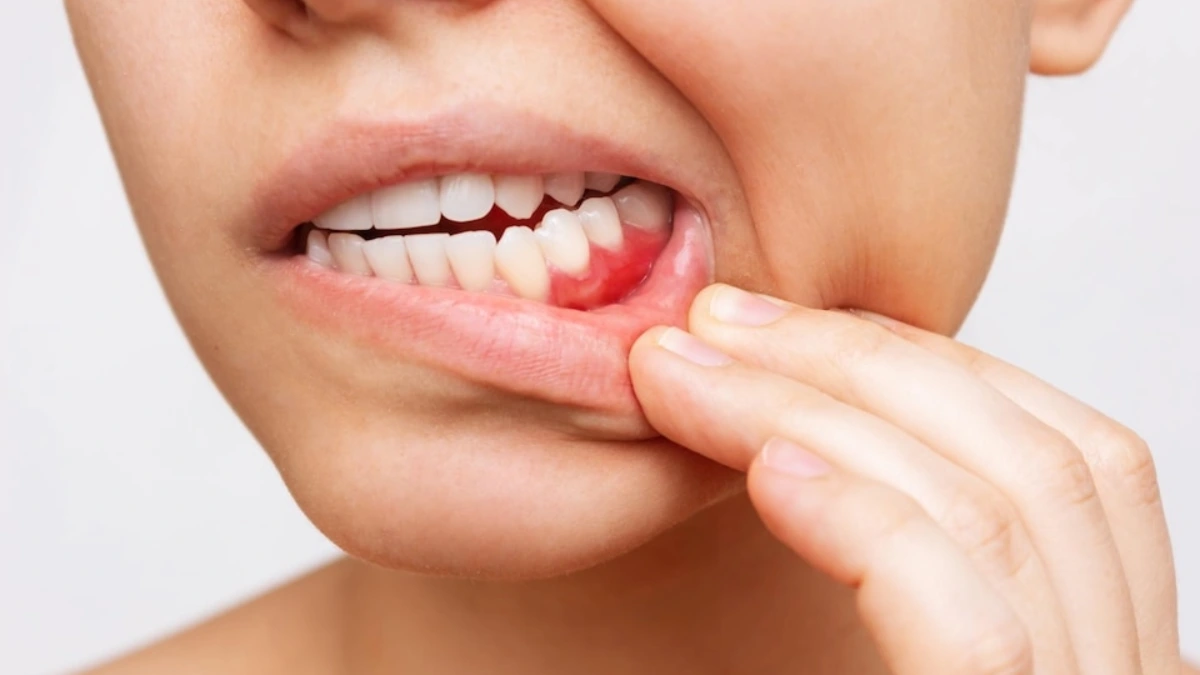Nighttime oral bleeding can act as a distress indicator regarding one’s overall health, often uncovering underlying conditions that may need immediate attention. The occurrence of spitting blood in the morning when one wakes up, experiencing a dry, bleeding mouth at night, or waking up with dried blood in the mouth are not issues to be taken lightly. This article discusses measures to address the root causes effectively.
Symptoms of Blood in the Mouth
Circumstance of Occurrence
Blood may appear abruptly or persistently, depending on factors like trauma, position, or the time of day (morning or night).
Quantity and Appearance
The amount of blood lost can vary, from a mere spit to a more significant hemorrhagic bleeding. The appearance may range from bright red to darker shades.
Associated Signs
Fatigue, fever, chills, sore throat, voice changes, cough, and other symptoms may accompany blood in the mouth, necessitating prompt attention.
Potential Causes of Nighttime Mouth Bleeding
Gums Bleeding at Night While Sleeping
Mouth bleeding during sleep can be attributed to various factors, including periodontal issues and bruxism (teeth grinding). Individuals who grind their teeth at night may experience increased pressure on their gums, leading to irritation, inflammation, and subsequent bleeding.
Diabetes and Blood Sugar Fluctuations
Unstable blood sugar levels can significantly impact gum health, often resulting in inflammation and compromised resistance to bacterial infections in the mouth. Consequently, those with diabetes or pre-diabetes might notice increased incidents of nighttime oral bleeding.
Stress and Its Oral Manifestations
Stress can manifest in numerous physical symptoms, including a decline in immune efficacy, which might affect the body’s ability to combat gum disease. Additionally, stress-induced behaviours such as jaw clenching can put undue pressure on the gums and oral cavity, leading to bleeding.
Is Bleeding from the Mouth a Sign of Cancer?
Occasional nighttime oral bleeding might not signal severe health issues; however, persistent oral bleeding, especially without an obvious cause, warrants a thorough investigation. While it could be a symptom of gum disease or inflammation, in some cases, it could also be indicative of oral cancers. Consistent, unexplained oral bleeding should prompt a consultation with a doctor to rule out any malignancies.
How to Stop Mouth Bleeding at Night
Addressing nighttime oral bleeding requires an all-encompassing approach, focusing on both treatment and prevention. If teeth grinding is the cause, a custom-fitted night guard provided by a dental specialist can mitigate grinding and protect the gums and teeth. Meanwhile, for those dealing with gum diseases like gingivitis or periodontitis, professional dental cleanings and rigorous oral hygiene regimens are critical.
In the case of blood sugar-related gum issues, managing diabetes effectively with a healthcare provider’s guidance is essential. As for stress-related oral impacts, exploring relaxation techniques and stress management strategies could alleviate the symptoms.
When to Seek Professional Help
If you notice prolonged instances of nighttime oral bleeding for no apparent reason, especially in the absence of recent dental procedures or injuries, consult a healthcare professional. Early diagnosis and intervention can significantly increase the efficacy of treatment plans.
Avicenna International Hospital: Your Ally in Oral Health
At Avicenna International Hospital, our dental specialists are equipped to diagnose and treat a variety of oral health concerns, including those that contribute to nighttime oral bleeding. We understand the intricacies of oral health and its correlation with overall well-being. If you’re experiencing any symptoms related to oral bleeding, please contact us to schedule a health checkup in Turkey.
Spitting blood in the morning can result from nighttime gum bleeding, perhaps due to bruxism or periodontal issues that are inactive during the day.
Oral bleeding seldom resolves on its own without identifying and addressing the underlying cause. Seeking professional advice is always recommended.
Disregarding such symptoms can lead to the progression of potential diseases, such as periodontal disease, which can have severe consequences for one’s oral and general health.
Immediate measures include rinsing with salt water, applying pressure with a clean gauze, and maintaining good oral hygiene. However, these are temporary solutions, and a visit to a dental professional is crucial for long-term treatment.







